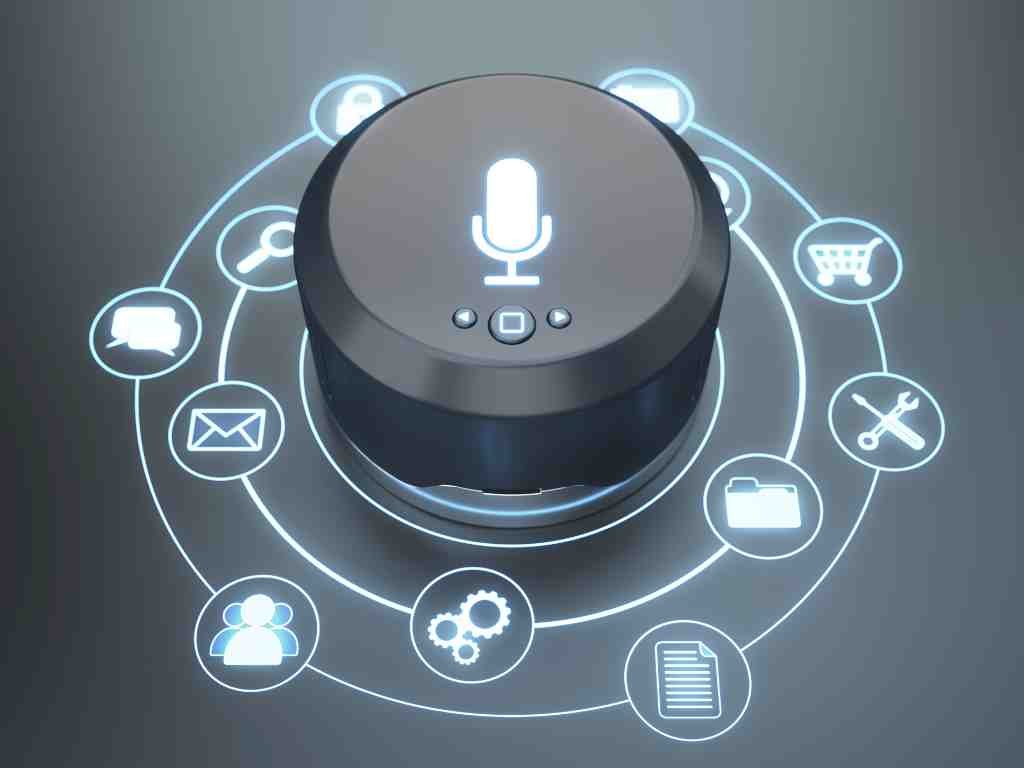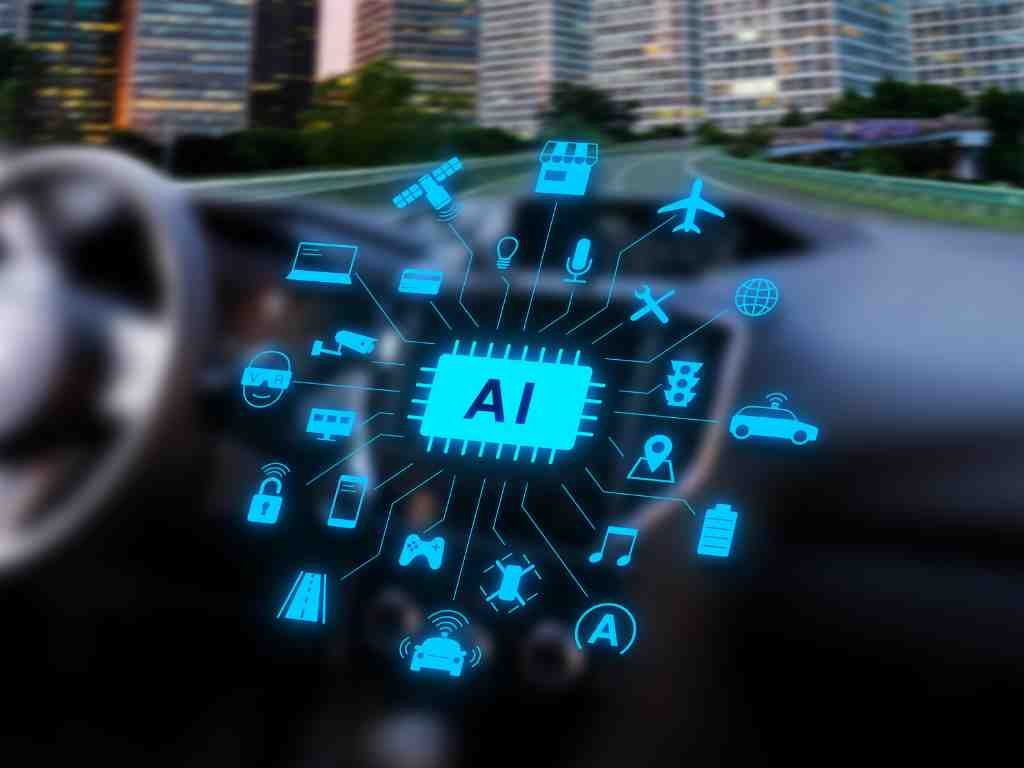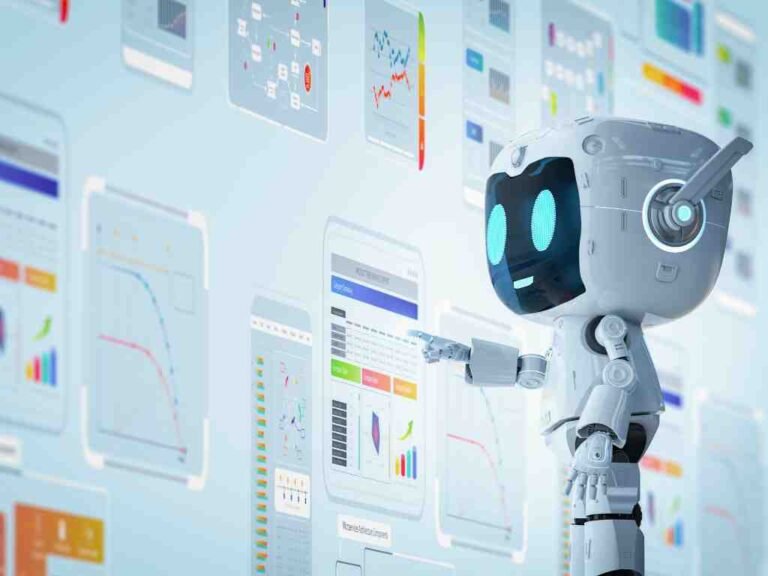Artificial intelligence (AI) has been a topic of fascination and debate for decades. From its early beginnings as a niche field in computer science to the present day, where it is increasingly becoming an integral part of our daily lives, AI has evolved into one of the most exciting and rapidly advancing fields of research today. As we stand at the threshold of this new era, there are many questions about the future of AI that come to mind. What does it hold for us? Is it truly the revolution we’ve been promised? And what lies in store for humanity as a result of its growth?
In this article, we’ll delve into the world of AI, examining both the impressive advancements and the challenges ahead. We’ll separate fact from fiction, exploring the potential benefits and risks associated with the development and use of artificial intelligence.
The Current State of Artificial Intelligence
Artificial intelligence (AI) has made tremendous strides in recent years, with significant advancements in machine learning, natural language processing, computer vision, and other areas. These breakthroughs have enabled the development of sophisticated systems that can improve efficiency, productivity, and overall quality of life.

The Rise of AI-Powered Virtual Assistants
Virtual assistants like Siri, Alexa, and Google Assistant have become increasingly popular, making it possible for users to interact with machines using natural language. These virtual assistants use natural language processing (NLP) to understand voice commands and provide relevant responses. With the ability to learn from user behavior and improve over time, these systems have become an integral part of modern life.
The Power of Deep Learning Algorithms
Deep learning algorithms are a type of machine learning that enable machines to learn from vast amounts of data and improve their performance over time. These algorithms are designed to mimic the structure and function of the human brain, allowing them to recognize patterns and make predictions based on complex data sets. The development of deep learning algorithms has led to breakthroughs in fields such as:
* Medical Imaging: AI-powered systems can now analyze medical images with greater accuracy than ever before, helping doctors diagnose diseases more effectively.
* Speech Recognition: Deep learning algorithms have enabled machines to recognize spoken language with unprecedented accuracy, revolutionizing the way we communicate.
* Language Translation: AI-powered translation systems can now translate languages in real-time, breaking down cultural and linguistic barriers.
The Impact of AI on Self-Driving Cars
Self-driving cars are another area where AI has made significant progress. By leveraging machine learning algorithms and computer vision, self-driving cars can detect and respond to their environment in real-time, making them safer and more efficient than human drivers. With the ability to analyze vast amounts of data and improve over time, self-driving cars have the potential to transform the way we travel.
The Future of Artificial Intelligence
The evolution of artificial intelligence is a rapidly advancing field that holds great promise for improving efficiency, productivity, and overall quality of life. From virtual assistants to self-driving cars, AI has already made significant strides in recent years. As research continues to push the boundaries of what is possible, we can expect to see even more breakthroughs in the coming years.

As artificial intelligence (AI) continues to evolve, it is poised to transform various industries and aspects of our daily lives. From increased efficiency and productivity to improved healthcare and enhanced education, AI will play a significant role in shaping the future.
Unlocking Efficiency and Productivity
The integration of AI technology will lead to increased automation across sectors, including:
* Manufacturing: AI-powered robots and machines will optimize production processes, reducing waste and improving quality. This will not only increase productivity but also reduce costs, enabling companies to invest in research and development, expand their offerings, and improve customer satisfaction.
* Transportation: Autonomous vehicles will revolutionize transportation, making it safer and more efficient. With the ability to analyze vast amounts of data and make decisions in real-time, autonomous vehicles will reduce accidents caused by human error, decrease fuel consumption, and minimize traffic congestion.
* Household: Additionally, smart homes and cities will become increasingly common, where AI systems learn to optimize energy consumption, traffic flow, and waste management. This will not only reduce costs but also improve the overall quality of life for citizens. Smart homes will be able to anticipate and adapt to their residents’ needs, ensuring a comfortable and efficient living experience.
Revolutionizing Healthcare
The intersection of AI and healthcare is a rapidly growing field, with significant potential for improvement. Some key areas include:
* Disease Diagnosis: AI algorithms can analyze vast amounts of medical data, identifying patterns and helping doctors diagnose diseases more accurately. This will enable early detection and treatment of diseases, reducing the risk of complications and improving patient outcomes.
* Personalized Medicine: With the help of AI, personalized medicine is becoming a reality, where treatment plans are tailored to individual patients’ needs. AI can analyze genetic data, medical history, and lifestyle factors to create personalized treatment plans that maximize effectiveness and minimize side effects.

In addition to these applications, AI is also being used in healthcare to improve patient engagement and empowerment. Wearable devices and mobile apps can track vital signs, monitor health trends, and provide patients with access to their medical records, enabling them to take a more active role in their care.
Enhancing Education
The role of AI in education is multifaceted, with potential benefits for students and educators alike. Some key areas include:
* Adaptive Learning: AI can create customized learning experiences for students, adapting to their pace and ability level. This will enable students to learn at their own pace, filling knowledge gaps, and avoiding plateaus.
* Intelligent Tutoring Systems: AI-powered tutoring systems can provide one-on-one support, offering real-time feedback and guidance. This will enable students to receive personalized support, accelerating their learning process and improving academic outcomes.
In addition to these applications, AI is also being used in education to improve teacher effectiveness and student engagement. Automated grading systems and personalized feedback tools can help teachers identify areas where students need additional support, enabling them to tailor their instruction and improve student outcomes.
Boosting Security
As AI technology advances, the risk of cybersecurity threats will also increase. To combat this, AI can be used to develop more sophisticated security systems, including:
* Predictive Analytics: AI can help predict potential threats, allowing for proactive measures to be taken. This will enable organizations to anticipate and respond to cyber threats before they occur, reducing the risk of data breaches and minimizing downtime.
* Cybersecurity Threat Detection: AI-powered systems can detect and respond to cyber threats in real-time. This will enable organizations to quickly identify and contain threats, minimizing damage and reducing the risk of financial loss.
By embracing the benefits of AI, we can unlock a brighter future for individuals, industries, and society as a whole. Whether it’s increasing efficiency and productivity, improving healthcare outcomes, enhancing education, or boosting security, AI has the potential to transform our world in meaningful ways.
The Challenges Ahead
The advent of artificial intelligence (AI) has brought about numerous benefits, but it also presents a range of challenges that must be addressed to ensure its responsible development and deployment.
Mitigating the Risks of Job Displacement
As AI assumes routine and repetitive tasks, there is a growing concern that many jobs may become obsolete. This raises questions about the impact on employment and the need for individuals to upskill or reskill in order to remain employable in an AI-driven economy.
* Automation: The increasing use of automation technologies, such as machine learning and natural language processing, is transforming various industries. While this can lead to increased productivity and efficiency, it also poses a risk of job displacement.
* Upskilling and Reskilling: To mitigate the impact of job displacement, it’s essential for individuals to develop new skills that complement AI-driven automation. This may involve acquiring skills in areas such as data science, machine learning, or creative problem-solving.
Addressing Bias and Discrimination
AI algorithms are only as good as the data they’re trained on, which means that biases and inaccuracies can be perpetuated if the data is incomplete, outdated, or biased. To mitigate these risks, it’s crucial to create diverse and inclusive datasets that reflect the complexity of real-world problems.
* Data Quality: The quality of the data used to train AI algorithms has a direct impact on their performance. Poor-quality data can lead to biased or inaccurate results, which can have serious consequences in areas such as healthcare, finance, and law enforcement.
* Diversity and Inclusion: To create high-quality datasets, it’s essential to involve diverse stakeholders, including underrepresented groups, in the development process. This can help ensure that AI systems are fair, transparent, and accountable.
Ensuring Safety and Security
As AI systems become increasingly integrated into various aspects of life, there is a growing concern about their safety and security. While AI has the potential to bring numerous benefits, it also poses risks related to job displacement, privacy concerns, and data protection.
* Job Displacement: The automation of jobs can lead to unemployment and economic disruption, particularly in industries that are heavily reliant on routine and repetitive tasks.
* Privacy Concerns: AI systems often require access to sensitive personal data, which raises concerns about privacy and data protection. Ensuring the security and confidentiality of this data is essential to building trust in AI-driven systems.
By acknowledging these challenges and taking proactive steps to address them, we can ensure that AI is developed and deployed in a responsible and ethical manner. This will require collaboration among stakeholders, including policymakers, industry leaders, and civil society organizations, as well as continued investment in research and development.
The future of artificial intelligence holds immense promise, with the potential to revolutionize industries, transform daily life, and improve overall quality of life. However, as we stand at the threshold of this new era, it’s essential to acknowledge both the benefits and risks associated with AI development and use.
As we move forward, it’s crucial to prioritize responsible AI development, ensuring that machines are designed and used in ways that enhance humanity, rather than detract from it.



